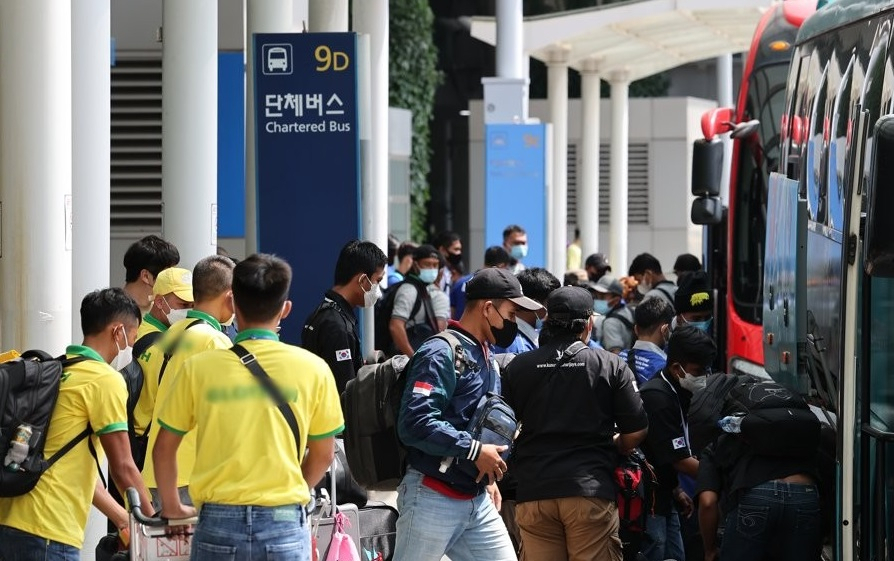Korea to start hiring E-9 visa foreign workers in restaurants
Government to issue 37% more visas for foreign workers next year
By Jung Min-kyungPublished : Nov. 27, 2023 - 18:07

Unskilled foreign workers will be allowed to work in restaurants across South Korea starting next year, as the government plans to increase the quota for E-9 visas, officials said Monday.
The plan, however, will remain in test trial until further confirmation.
“Korean restaurants in 100 areas across the country (including Seoul, Busan, Daegu and Incheon) will be allowed to hire unskilled foreign workers as employees (starting next year) as a test trial,” Ministry of Employment and Labor and Office for Government Policy Coordination said.
Unskilled workers who are issued E-9 visas after April will be eligible to participate in the test run.
Restaurants with a total staff of five and above will be able to hire a maximum of two unskilled foreign workers. Those below the workforce of five will be able to hire one employee with an E-9 visa.
Currently, only Korean citizens and foreigners with H-2 working visas and D-2 international student visas are able to work in local restaurants.
Unskilled foreign workers will be tasked with dishwashing and help with cooking. They will not be hired as waiters or servers for the moment due to language barrier issues, the government explained.
“We will take opinions of customers, employers and employees at restaurants and a government assessment into consideration before expanding on the plan,” officials said.
Unskilled foreign workers will be hired in the forestry and mining industries for the first time as well. Both metal and non-metal mines with an annual production size of over 15 metric tons will be eligible.
For the forestry and mining industries, unskilled workers who are issued E-9 visas after July will be eligible to be employed.
The new employment rule update is tied to the government’s latest plan to increase its quota for E-9 visas for unskilled foreign workers next year by 37.5 percent to 165,000. The number is the largest since Korea adopted the Employment Permit system introduced in 2004 to address a chronic labor shortage.
Korea is currently grappling with the world's lowest birth rate and a rapidly aging population.
Korea's total number of births and fertility rate fell to record lows in 2022, data showed earlier this year. Only 249,000 babies were born in 2022, down 11,000 on-year, according to the data compiled by Statistics Korea.
It marked the first time that the figure had fallen below 250,000 since the agency started compiling related data in 1970.
Korea is set to become a “superaged society” in 2025, in which the age group takes up 20 percent of the population.
People aged 65 and older accounted for 18.4 percent of South Korea’s population this year, reflecting the rapidly aging demographic of Asia’s fourth-largest economy, separate Statistics Korea data showed. The number of older adults stood at 9.5 million out of the country’s 51.5 million population this year.
The number is expected to continue to rise to reach 13 million in 2030, or 25.5 percent of the total population, and eventually to reach 17.4 million, or 46.4 percent in 2070.
“We have noticed the growing demand for a foreign workforce in some service sectors amid a low birth rate and an aging society,” Labor Ministry officials said.



















![[Today’s K-pop] Treasure to publish magazine for debut anniversary](http://res.heraldm.com/phpwas/restmb_idxmake.php?idx=642&simg=/content/image/2024/07/26/20240726050551_0.jpg&u=)